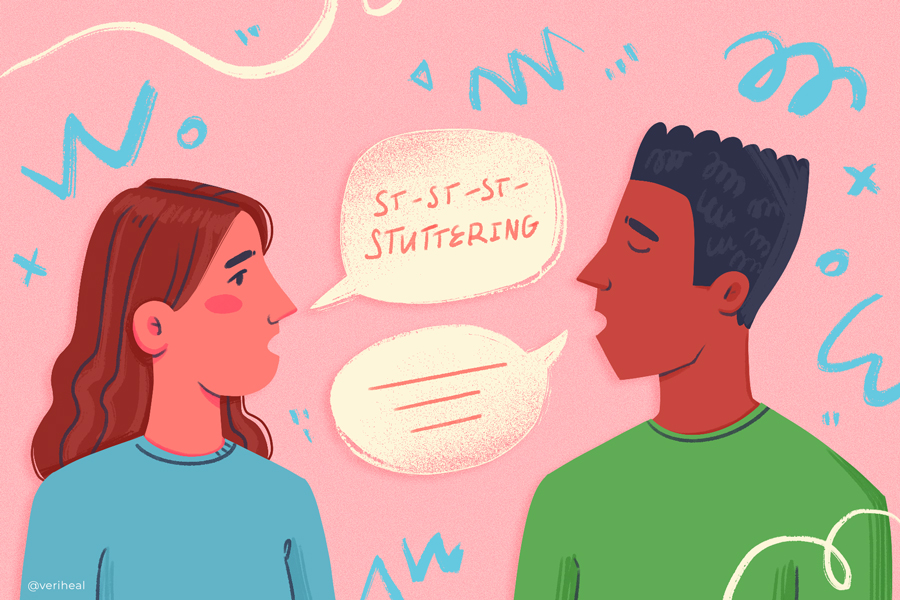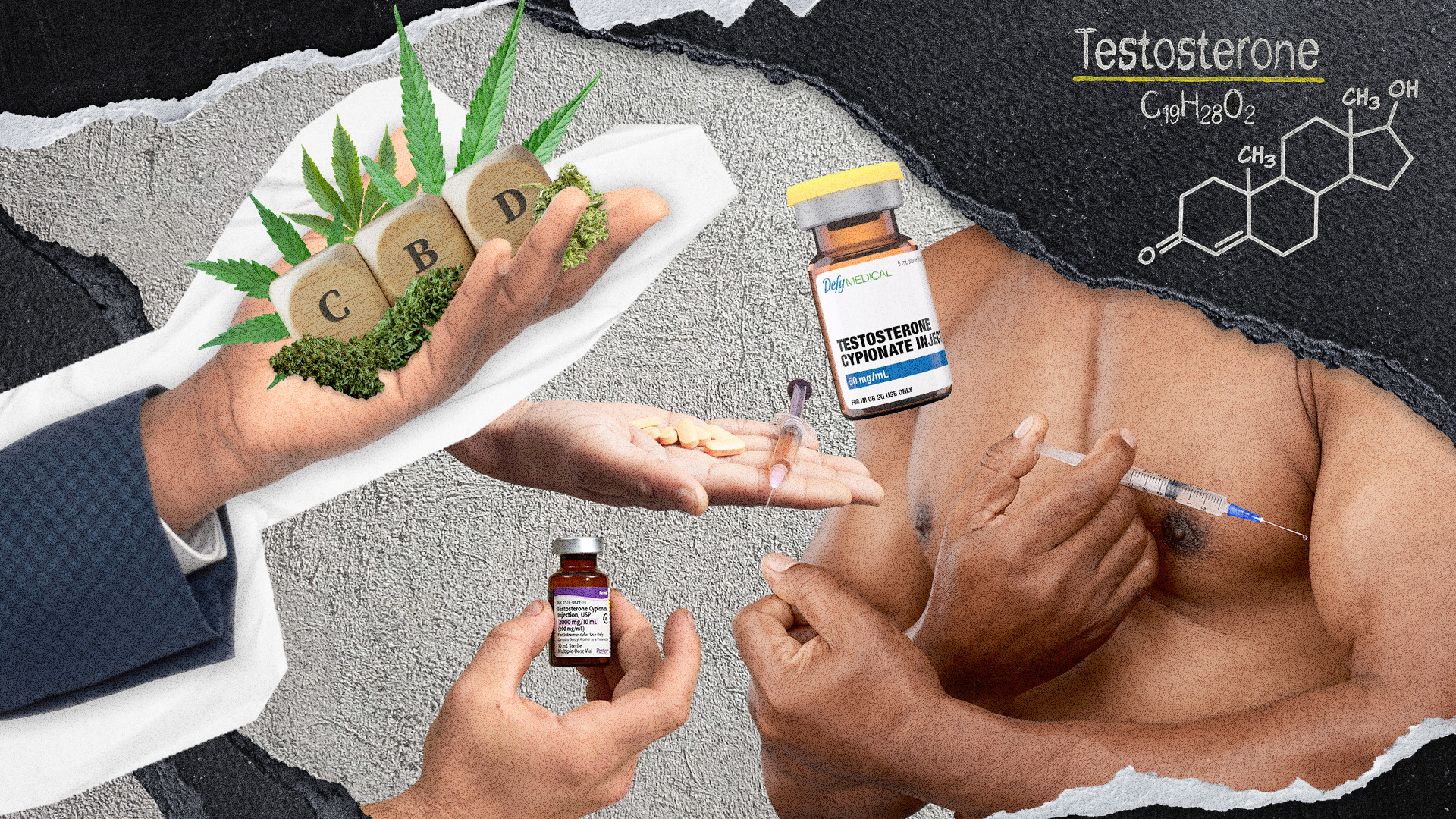Tourette syndrome (TS) is a neuropsychiatric disorder that is characterized by involuntary motor and vocal tics. While there is no cure for TS, a study found that cannabis was able to improve severe vocal-blocking tics. An estimated 100,000 Americans live with TS, and cannabis could be a candidate for enhancing their quality of life.
What Is Tourette Syndrome?
Tourette syndrome is a medical disorder that involves a lot of repetitive movements or unwanted sounds (tics) that can’t be easily controlled, explains the Mayo Clinic. The tics involved in TS can either be simple (sudden, brief, repetitive, involving limited muscle groups) or complex (distinct, coordinated patterns of movements involving several muscle groups).
Motor Tics
Motor tics refer to the TS symptoms that involve movement. According to the Mayo Clinic, common simple tics include eye blinking, head jerking, shoulder shrugging, eye darting, nose twitching, and mouth movements. Meanwhile, common complex tics include touching or smelling objects, repeating observed movements, stepping in a certain pattern, obscene gesturing, bending or twisting, and hopping.
Vocal Tics
Vocal tics are the sound-related symptoms associated with TS. Common vocal tics include grunting, coughing, throat clearing, and barking. Complex vocal tics include repeating one’s own words or phrases (palilalia), repeating others’ words or phrases (echolalia), and using vulgar, obscene, or swear words (coprolalia). Since vocal tics were the focus of the study that found cannabis to be beneficial for TS, let’s dive a little deeper into them.
Simple vocal tics are described by ScienceDirect as noises or sounds that “are produced by the movement of air through the mouth, nose or throat.” Both simple motor and vocal tics are commonly associated with “a premonitory sensation, sometimes referred to as a ‘sensory tic.’ Such sensations are typically uncomfortable and localized at the site of a tic (e.g., in the throat for vocal tics).” TS patients have expressed that they feel the need to enact a tic in order to relieve those abnormal sensations.
How Can Cannabis Ease Tourette Syndrome?
The study, published in the International Journal of Molecular Sciences, explains that TS patients can suffer from “incapacitating stuttering-like speech disfluencies caused by vocal blocking tics and palilalia.” Vocal blocking tics refer to “recurrent cessation of motor output” related to speech (vocals). The research team wanted to investigate if cannabis could provide any alleviation for vocal-blocking tics.
Why You Should Get Your Medical Marijuana Card
Veriheal has satisfied millions of patients nationwide by giving them access to these benefits
- Larger purchase limits
- Peace of mind
- Enhanced legal protection
- Access to higher potency strains
- Save up to 25% on cannabis purchases
- Skip the line at the dispensary
The researchers recruited two patients, a 19-year-old and a 16-year-old, both of whom had severe vocal-blocking tics and who received cannabis treatment as part of the study. TS patients with vocal-blocking tics are often misdiagnosed as suffering from speech pathology, but the researchers explain that “tic-induced disfluency in speech was shown to be quite different from speech pathologies such as stuttering and cluttering.”
Current forms of treatment for tics include behavior therapy and antipsychotic medication—both of which are known to have significant adverse effects and may not be that effective. Cannabis with a 1:1 ratio of tetrahydrocannabinol (THC) and cannabidiol (CBD) has thus been suggested as a new treatment strategy for TS patients.
The two TS patients who took part in this study had “failed several state-of-the-art treatments,” which were intended to improve their speech fluency, social impairment, and quality of life. Both patients suffered from complex vocal tics, including blocking and palilalia, which began early in their childhood and were initially diagnosed as primary stuttering (a speech pathology diagnosis).
Daily doses of cannabis were administered to the patients. The 19-year-old reported being able to “speak nearly fluently in most situations,” along with improvements to other tics, such as head nodding. This patient also explained that a 70% reduction in blocking speech tics had him feeling calmer throughout the day. The 16-year-old reported being more relaxed, speaking more fluently, and having better focus.
Talk to an MMJ Doctor
While the study’s sample size was quite small, its promising findings warrant a larger clinical study. As with many other conditions, Tourette syndrome differs from person to person in both severity and type of tics. The researchers concluded, “We suggest that greater awareness should be raised for the existence of tic-related stuttering-like symptoms and efforts should be made to avoid misdiagnoses, because severe vocal blocking tics regularly cause significant social impairment.”
If you live with Tourette syndrome, avoid self-medicating with cannabis. Consuming cannabis for TS symptom relief should be done with caution and intention, as there are many different factors to consider (such as the strain, method of consumption, etc.). Rather than exploring medical cannabis yourself, talk to a licensed medical cannabis doctor about adding it to your treatment plan.
Author, Share & Comments
















